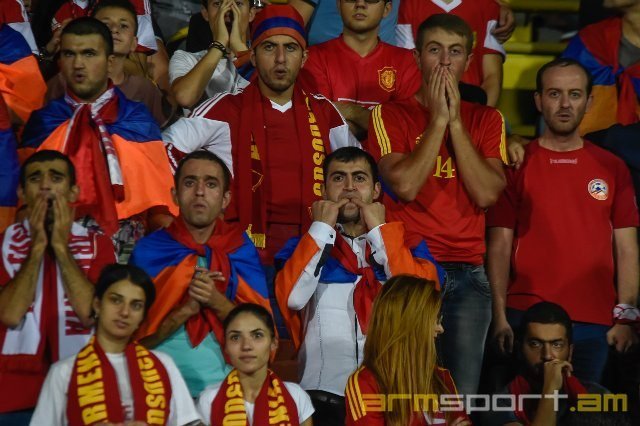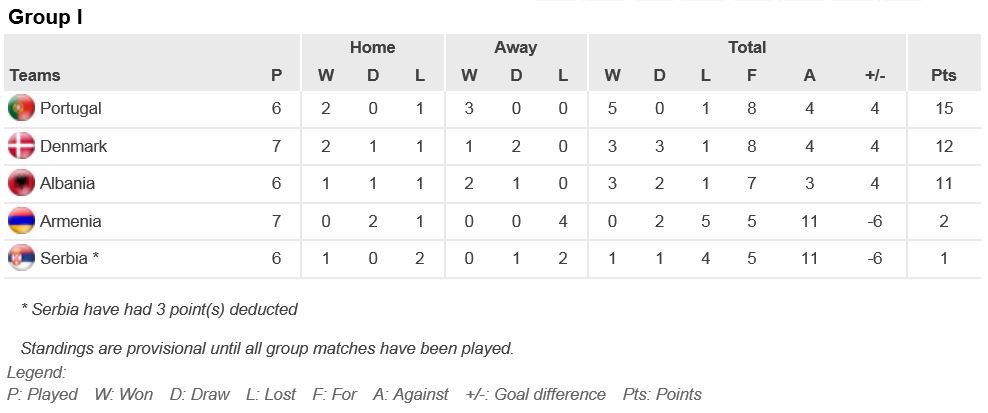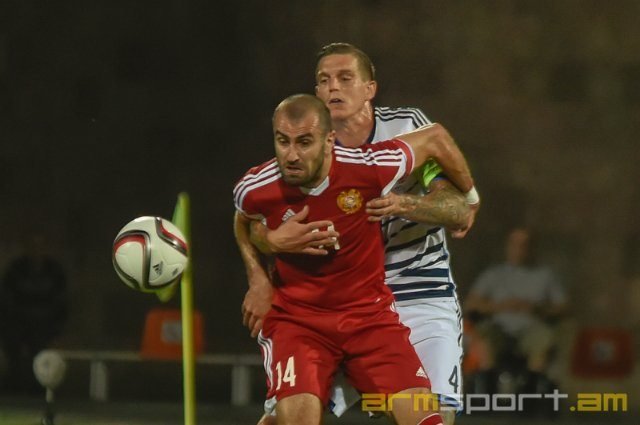When the Euro 2016 qualification draw took place at the Palais des Congrès Acropolis in Nice, France, on Sun., Feb 23, 2014, one thing was abundantly clear: Armenia’s path to the finals would be difficult, but achieving qualification was an attainable goal. If the team could continue their impressive form away from home and add a little steel and fortitude to their home performances, perhaps this could be their time, perhaps they could be one of the 24 teams to make it.
Being drawn into the only 5-team group, Group I, along with Portugal, Denmark, Serbia, and Albania, it was understood that a series of 8 matches (as opposed to 10 matches like the other groups) would determine which 2 teams advanced and which 3rd– placed team took the playoff berth. Less matches certainly places more emphasis on each performance, magnifying everything good and everything bad that happens through the course of each 90-minute examination.
Although their opponents were formidable, knowing that Armenia’s final two matches of the qualifying campaign would be played in Yerevan was cause for more than a little optimism. Perhaps the road to Euro 2016 would finally run through Yerevan. Perhaps the Armenian team could for once take control of their own destiny, be cheered on by a partisan crowd, and use that home advantage to persevere, prevail, and continue their march all the way to the finals in France. Perhaps, perhaps, perhaps.
As things stand in the group, the road to the Euros does run through Yerevan, but alas, for the home team they are merely a bump in the road. Portugal, Denmark, and Albania are still battling it out for the three top spots in the group. Although Serbia and Armenia’s campaigns have been poor to date, being mathematically eliminated from the race with matches to spare is even harder to swallow.
Armenia traveled to Serbia on Fri., Sept 4, for a relatively meaningless contest. Always a tough place to get a result, Armenia was ultimately undone by an unfortunate first half own-goal by Levon Airapetian, followed by a tidy back-post finish by Adem Ljajić, as he profited from a series of defensive mistakes. The result gave Serbia their first victory of the campaign and finally got them back into the black, recovering from a three-point deduction for earlier indiscretions in the campaign.
Returning to Yerevan on Mon., Sept. 7, Armenia welcomed Denmark for the first of those aforementioned home matches to end the campaign. Denmark needed maximum points to keep their hopes of automatic qualification alive. If Denmark thought things would be easy based on Armenia’s standing in the group, they were mistaken. In fact, escaping with a point following a 0-0 stalemate was somewhat fortuitous for the Danes and unlucky on Armenia. Defending astutely, Armenia should have secured all three points in the second half when both Yura Movsisyan and Artem Simonyan spurned guilt-edged opportunities to score a winner. Armenia’s performance was a refreshing change, and although they are still without a win, there were many positives to take away from the match.
Sargis Hovsepyan will be pleased with a clean sheet and the fact that Gevorg Kasparov is growing in confidence as first choice goalkeeper and that an understanding with his back four is slowly developing. Young player Artem Simonyan greatly impressed with his substitute appearance, almost creating headlines for himself with his first involvement. Ruslan Koryan also impressed after replacing Marcos Pizzelli in the hole just behind the striker. His incisive ball in the 65th minute released Movsisyan for a great chance at goal, but Movsisyan was unable to convert.
Next month, Armenia will put the final touches to a campaign that was far from what it hoped it would be. Albania will arrive in Yerevan on Sun., Oct. 11 with a ticket to the finals in France within its grasp. It will be up to Armenia to play its part and try to spoil the party. Looking across the landscape of European soccer there is somewhat of a renaissance happening. Teams like Iceland, Wales, and Northern Ireland have really taken massive strides towards success. Albania and Scotland are other teams that are fighting for a place in the finals. Teams that have never been there, and teams that have suffered long droughts, are finally making the breakthrough. Seeing those nations play at next year’s tournament will be tremendous, a breath of fresh air. Not seeing Armenia there, a nation that has all sorts of potential but has somehow lost its way in recent times, is more than unfortunate, it’s downright disappointing.
Armenia Squad
Gevorg Kasparov, Gael Andonian, Robert Arzumanyan, Karlen Mkrtchyan, Marcos Pizzelli, Gevorg Ghazaryan, Yura Movsisyan, Hrayr Mkoyan, Henrikh Mkhitaryan, Levon Airapetian, Aras Özbiliz, Arsen Beglaryan, Gevorg Prazyan, Varazdat Haroyan, Taron Voskanyan, Artak Grigoryan, Ruslan Koryan, Artem Simonyan, Kamo Hovhannisyan, Norair Aslanyan, Artur Yusbashyan, Hovhannes Hambartsumyan, Vardan Pogosyan


If Hovsepian was trying to punish Ozbiliz by not playing him until the end of the Denmark game, he made a huge mistake.